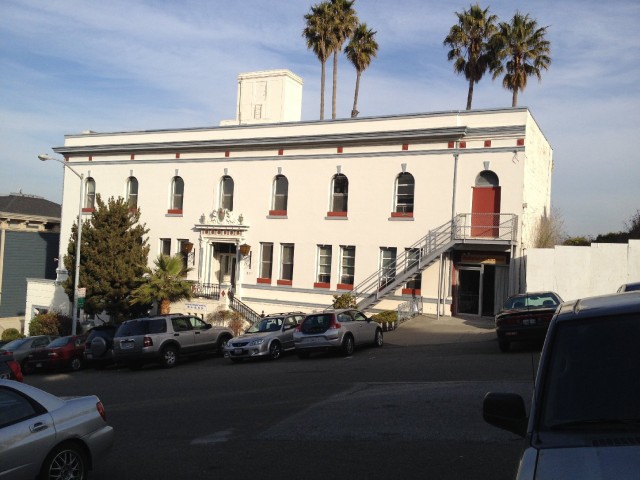Meanwhile, the families of these elders are helping their loved ones adjust to new and unfamiliar surroundings.
Jennifer Huey’s mom, Chu Huey, is 80 years old and now lives in Oakland at the McClure Convalescent Hospital. She has dementia and a slew of other medical problems. She lives her life bed-bound, so everything about her existence is determined by the care she gets at McClure.
Chu Huey moved from Mission Bay late last year. She’s one of 35 patients who left before the home closed its doors in February.
Shrinking Supply of Beds for Low-Income San Franciscans
Residents like Chu Huey appreciated Mission Bay partly because it was familiar: There were bulletin boards with handwritten notices in Chinese, wall calendars in the good-luck colors of red and gold, and when families brought Chinese food with them, patients were surrounded with the smells of home.
But Mission Bay was housed in an aging building -- first built in 1917 -- and it needed major upgrades, like fire sprinklers and disabled access.
Mission Bay housed only Medi-Cal patients, so its revenue was limited to the reimbursement it could get, which in 2013 was $185.39 per patient per day according to the state Department of Health Care Services.
In short, costs were growing faster than the reimbursements.
A lawyer for the owner, Bill Price, declined an interview request from KQED.
Benson Nadell is director of the San Francisco Long-Term Care Ombudsman Program, a federally-funded patient advocate.
Nadell says San Francisco is steadily losing low-income nursing home beds. He estimates 900 Medi-Cal beds have disappeared over the last 20 years -- about a third of the supply. None are being added.
“I was hoping when I first got contacted by the facility about closing, that somehow the city could have rallied around to save these beds,” Nadell said. “Because everyone in there is frail elderly from San Francisco, with families living in San Francisco."
But, Nadell said families had already received written notice early last fall that they’d have to leave. Given the demand for affordable beds, it became a real race to secure a spot elsewhere. The residents ended up quickly dispersing. Most of the patients at Mission Bay wanted to stay in the city. But out of 35 patients, only two were able to secure a spot in San Francisco.
Elderly Often Suffer "Transfer Trauma"
After moving, family members now have to travel farther to see loved ones, which means fewer visits. And some Mission Bay patients moved into nursing homes where few other patients or caregivers spoke their language.
Then there’s what’s called "transfer trauma" -- when a patient’s health suffers just from being moved. Jennifer Huey’s mother made half a dozen trips to the emergency room in the early weeks after her move out of Mission Bay.
Two other patients died shortly after they moved.
One is a 94-year-old woman who spoke only Cantonese and moved to a Kindred nursing home in Oakland at the end of October.
Her oldest son is still reeling with guilt. Tam, who only wanted to use his last name, is 74. He described getting a call from the new nursing home two weeks after his mom moved in.
“In the morning, they called and said she had a urinary tract infection," he said. "The doctor had given her medicine and she had taken it. But then that night, they called and said they had to send her to the hospital."
That was November 11th.
Two days later, Tam went to Oakland to visit his mom in the hospital.
Early November 14th, she died.
Tam says Mission Bay’s closure affected his mother's health.
“Once she moved to Oakland, it was not as convenient for me to visit, so I couldn’t go as often,” he said. “My mom was close to me, more attached to me than my other siblings. Being that far away from me affected her mood.”
Jennifer Huey says the move has taken a real toll on patients like her mom, too. And she says Mission Bay’s closure is a loss for the city as a whole.
“The heart of it is, there has been nothing to replace what Mission Bay was to the Chinese community,” Huey said.
Nadell, the patient advocate, hopes the city has a way to prevent more nursing homes from closing or leaving the city, based on financial pressure alone.
“I feel that individuals should not be squeezed out of the system based solely on the financial profile,” he said. “San Francisco has an obligation to its old people.”
As for the building itself, a local real estate dealer bought it for $2.7 million dollars.
[contextly_auto_sidebar id="FvoQj4Yjo4Qq9zcRdDb4AitBrLkGU822"]
